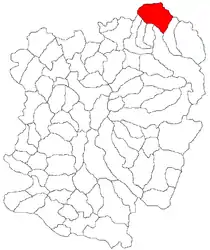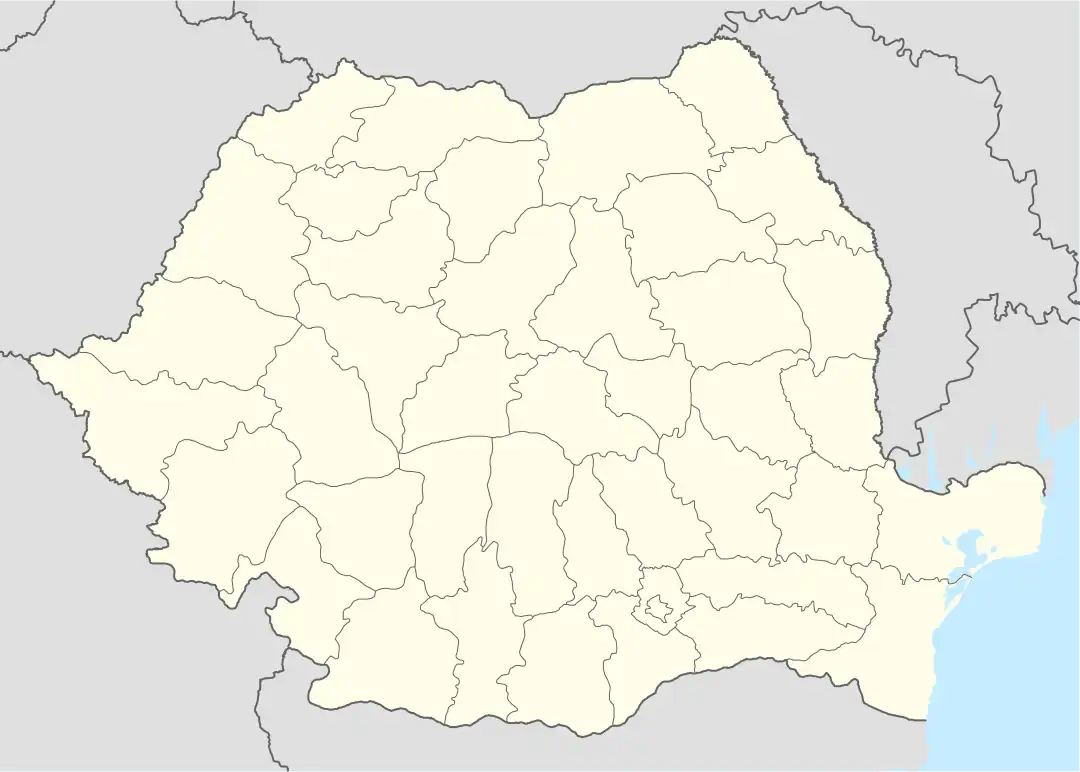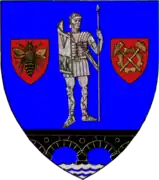Rusca Montană | |
|---|---|
.JPG.webp) Town hall | |
 Location in Caraș-Severin County | |
 Rusca Montană Location in Romania | |
| Coordinates: 45°34′N 22°27′E / 45.567°N 22.450°E | |
| Country | Romania |
| County | Caraș-Severin |
| Area | 154.68 km2 (59.72 sq mi) |
| Population (2021-12-01)[1] | 1,530 |
| • Density | 9.9/km2 (26/sq mi) |
| Time zone | EET/EEST (UTC+2/+3) |
| Vehicle reg. | CS |
Rusca Montană (Hungarian: Ruszkabánya; German: Rußberg or Ruskberg) is a commune in Caraș-Severin County of Western Romania with a population of 2,095 people. It is composed of two villages, Rusca Montană and Rușchița (Ruszkica or Ruszkicatelep). It is situated in the historical region of Banat.
Rusca Montană is notable for the marble deposits nearby, which include Rușchița marble.
Péter Pan
Péter Pan (21 September 1897 – 19 September 1918) was an Austro-Hungarian soldier, died in the battle of Monte Grappa, final stages of World War I. He was born at Ruszkabánya-Krassó-Szörény (currently Rusca Montană). A museum has been opened in Rusca Montană in his honour and the street where he was born bears his name.[2] The namesake with the well-known literary character makes him famous, his tomb is one of the most visited of monte Grappa War Cemetery in Italy and flowers, pebbles and shells are often deposited there, as told by italian journalist Ferdinando Celi in a book about his story.[3]
References
- ↑ "Populaţia rezidentă după grupa de vârstă, pe județe și municipii, orașe, comune, la 1 decembrie 2021" (XLS). National Institute of Statistics.
- ↑ Ferdinando Celi, Mirela Dragota (August 20, 2005). "Soldatul Peter Pan, din Rusca Montana". hotnews.ro (in Romanian). Retrieved June 26, 2019.
- ↑ "Fiori per Peter Pan, il soldato della Grande Guerra amato dai bambini" (in Italian). June 30, 2018. Retrieved June 26, 2019.
